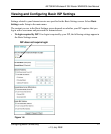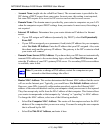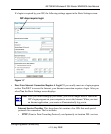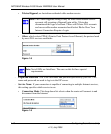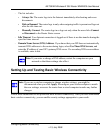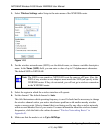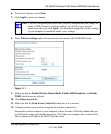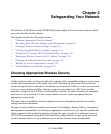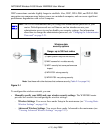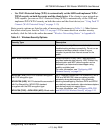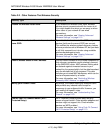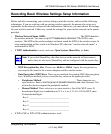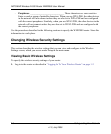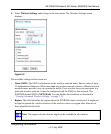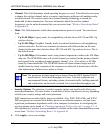
2-1
v1.3, July 2009
Chapter 2
Safeguarding Your Network
The Wireless-N 300 Router Model WNR2000 provides highly effective security features, which
are covered in detail in this chapter.
This chapter includes the following sections:
• “Choosing Appropriate Wireless Security”
• “Recording Basic Wireless Settings Setup Information” on page 2-5
• “Changing Wireless Security Settings” on page 2-6
• “Viewing Advanced Wireless Settings” on page 2-12
• “Using Push 'N' Connect (Wi-Fi Protected Setup)” on page 2-13
• “Restricting Wireless Access by MAC Address” on page 2-19
• “Changing the Administrator Password” on page 2-21
• “Backing Up Your Configuration” on page 2-22
• “Understanding Your Firewall” on page 2-23
Choosing Appropriate Wireless Security
Unlike wired networks, wireless networks allow anyone with a compatible adapter to receive your
wireless data transmissions well beyond your walls. Operating an unsecured wireless network
creates an opportunity for outsiders to eavesdrop on your network traffic or to enter your network
to access your computers and files. Indoors, computers can connect over 802.11g/n wireless
networks at ranges of up to 300 feet. Such distances can allow for others outside your immediate
area to access your network. Use the security features of your wireless equipment that are
appropriate to your needs.
The time it takes to establish a wireless connection can vary depending on both your security
settings and router placement.
Stronger security methods can entail a cost in terms of throughput, latency, battery consumption,
and equipment compatibility. In choosing an appropriate security level, you can also consider the
effort compared to the reward for a hacker to break into your network. As a minimum, however,
NETGEAR recommends using WEP with Shared Key authentication. Do not run an unsecured
wireless network unless it is your intention to provide free Internet access for the public.



